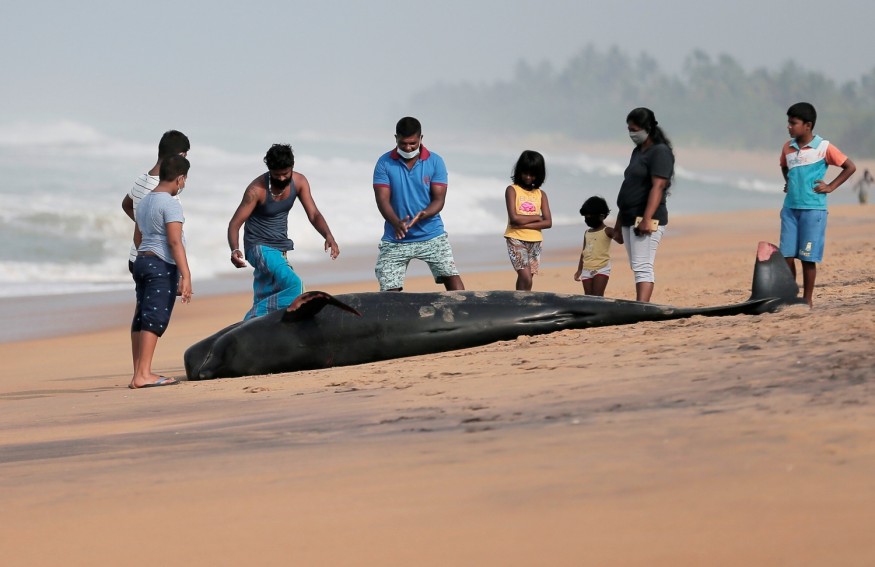The reason for frequent mass whale strandings remains a mystery. According to research from Aberystwyth University, pilot whales that became stranded in the northeast Atlantic and the Falkland Islands came from separate family groupings.

This defies earlier scientific hypotheses on the occurrence.
Cetacean Stranding
Marine animals that strand themselves like cetaceans can die. Long-finned pilot whales are among the species most adversely impacted, along with other varieties of dolphins.
Whales and dolphins may become stranded on land, generally on a beach, a process known as cetacean stranding or beaching. Dehydration, collapsing under their weight, or drowning when the blowhole is covered by high tide are the three leading causes of death for beached whales. Cetacean stranding has been a problem ever since the beginning of time.
Previous Hypothesis
Scientists have long hypothesized that these socially advanced creatures got trapped while attempting to keep their families together.
The whales spend most of their lives in family pods, where every member is connected to a single female. This means that when they find themselves in challenging seas, they may become stuck in their desperate attempts to stay together.
The Aberystwyth scientists collected and analyzed samples from mass stranding events in the northeast Atlantic and the Falklands in collaboration with scientists from the Falkland Islands Fisheries Department, the universities of Glasgow, Chester, and Utrecht, the Galway-Mayo Institute of Technology, and the Scottish Marine Animal Stranding Scheme.
They found that most of the stranded whales were unrelated to one another, indicating that familial cohesiveness was not the cause of the strandings.
The findings offer more proof that family units may mingle at some point during stranding procedures. In a news release, Niall McKeown, a member of the study team and lecturer in marine biology at Aberystwyth University, stated that it is yet unclear if this is a cause or a result of major strandings.
According to the study, mixed family units can be found during a large stranding. It could also indicate a social structure more advanced than that of long-finned pilot whales. Further investigation can greatly benefit rescue strategy development and aid untangling such issues.
Better Understanding
The institution claims that the erroneous assumption that all stranded whales belong to the same pod might hinder rescue attempts. According to the experts, this is because refloating whales that are unrelated to one another will frequently result in their becoming stranded once more.
It is well known that pilot whales are very protective of their offspring. The name of the species comes from the fact that the whales spend their entire lives with a single female in the pod.
There may be individual strandings when a marine animal is sick or hurt. They can occasionally avoid being unable to go back into the water by doing this. When whales unintentionally end out in shallow water, they might strand after becoming lost. Every year, 2,000 strandings take place all around the world.
For the latest animal news, don't forget to follow Nature World News!
© 2026 NatureWorldNews.com All rights reserved. Do not reproduce without permission.





